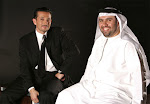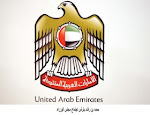
Both Abu Dhabi and Dubai are currently facing the issue of lack of housing for the local population. It is ironic when you consider the enormous amount of construction that has taken place there over the last few years.
Most of this construction has, of course, been aimed at the luxury and tourist markets, leaving a big gap in the middle to lower income brackets.
Abu Dhabi
A shortage of 20,000 housing units by the end of the year could increase inflation and raise the cost of living in Abu Dhabi further, according to a recent study. The solution is to freeze prices, according to the study, released by the Abu Dhabi Chamber of Commerce and Industry. Here are a few snippets from the report:
“In 2008, housing projects will target highly paid executives while people with low and medium income will be affected by the shortage and high rent.”
“The housing shortage will inevitably increase rents and put more stresses on people who pay more than 40 per cent of their income in housing.”
The population of Abu Dhabi increased by 100% over the past few years causing the shortage to become acute. “In 2005, the supply and demand was levelled and there was no shortage in housing. In 2006, there was a shortage of 3,000 units. By 2007, the shortage rose to 8,000 units,” the report said.
While the direct impact may be an increase in the cost of living, the report said the shortage could ultimately create a vicious circle that could affect the overall performance and competitiveness of the country.
Despite dozens of housing projects underway in the capital, the Chamber says this will not meet more than 20 per cent of the shortage.
According to the report, the solution to this ever-growing problem is to freeze rent prices for two years, to develop a housing plan to meet low and middle income demands and to encourage the private sector companies to create some low income construction.
Khalfan Al Ka’abi, chairman of the Chamber’s construction committee disgreed, oddly enough, and said freezing rents would only bring more chaos. “Freezing the rent is a very bad solution because this would freeze all investments. The solution is more units. More units will inevitably cut down prices,” Al Ka’abi said.
While the concept of freezing rents may sound idealistic to renters. Ka’abi says this move would discourage developers from building.
“We need to motivate more investors. The solution is that the government needs to give more land and the developers to build more. There needs to be a better platform where more developers can build. You can not just depend on master developers who will build cities and islands. The government must encourage all sizes of developers,” Al Ka’abi says.
According to previous chamber reports, the ideal annual rent should not exceed 25% of a yearly income, but the average person currently pays more than 40 per cent on housing alone.
“Salaries have gone up but they have been consumed by an increase in the cost of living so we are back to where we started. Once the supply matches the demand that’s when prices will start to level,” Al Ka’abi said.
Similar problems are being faced in Dubai, although they are taking a more pro=active approach.
His Highness Shaikh Mohammed bin Rashid Al Maktoum, Vice-President and Prime Minister of the UAE and Ruler of Dubai, recently announced the construction of 40,000 villas for nationals in the country.
After a whirlwind tour of the country’s central and eastern areas, Shaikh Mohammed said that Dh15 billion will be earmarked for the new housing program for nationals that embraces the whole of the UAE.
He issued directives to the Minister of State for Financial and Industrial Affairs. Shaikh Mohammed also said that he has instructed the Ministry of Social Affairs to immediately double the budget for social assistance allocations for nationals to Dh2.2 billion. This reaffirms his desire to see that citizens benefit from this program and achieve a better lifestyle.
Shaikh Mohammed also said that a cabinet reshuffle was on the cards next month.
He was accompanied by Mohammed Abdullah Al Gergawi, Minister of State for Cabinet Affairs, Dr Mohammed Khalfan bin Kharbash, Minister of State for Financial and Industrial Affairs, Sultan bin Sulayem, Chairman of Dubai Ports, Shaikh Hamdan bin Rashid Al Maktoum, Chairman of Dubai Executive Council, and Editors-in-Chief of Arabic and English newspapers in the UAE.

 As the U.S continues to struggle with issues created by the sub prime crisis, the lending climate in the U.S (confused) is encouraging more and more American real estate agents and owners to market their inventory overseas.
As the U.S continues to struggle with issues created by the sub prime crisis, the lending climate in the U.S (confused) is encouraging more and more American real estate agents and owners to market their inventory overseas.

 Lev Leviev has just paid a record amount for a new home in the U.K. - $70 million
Lev Leviev has just paid a record amount for a new home in the U.K. - $70 million



